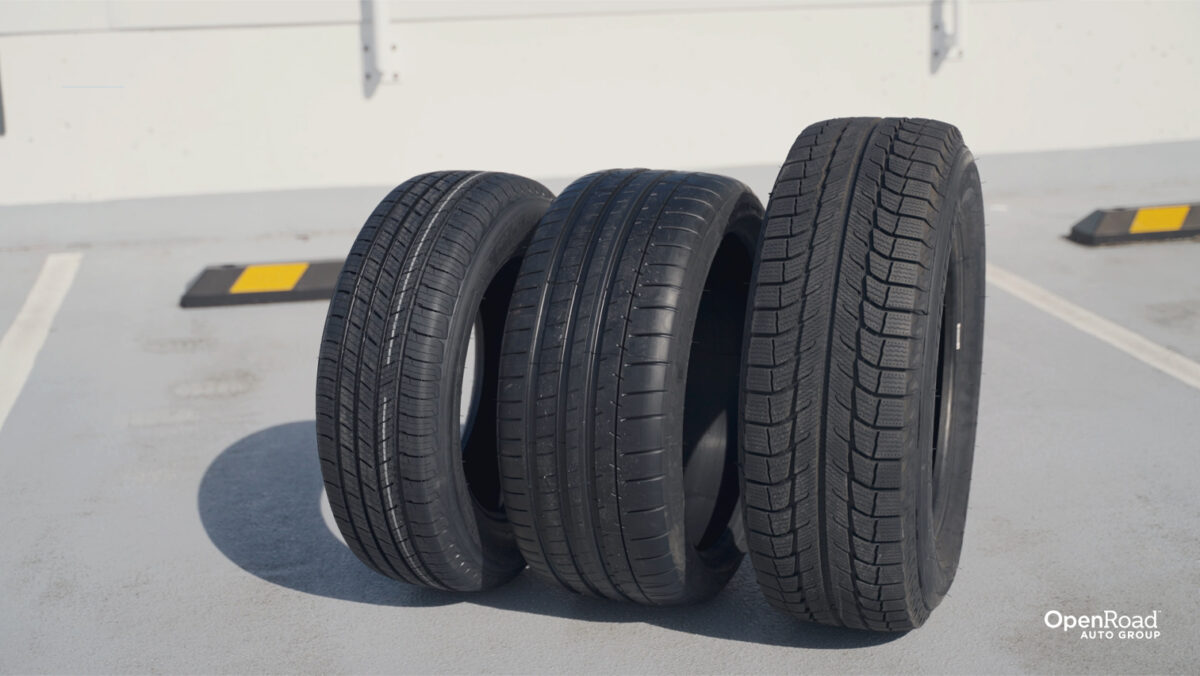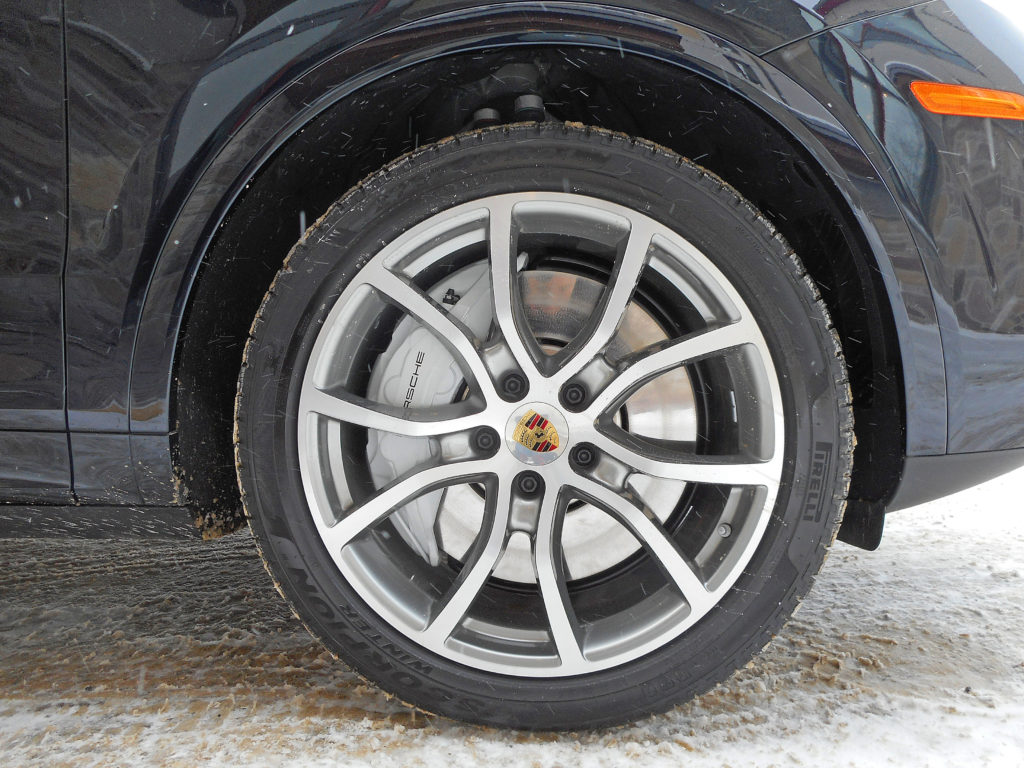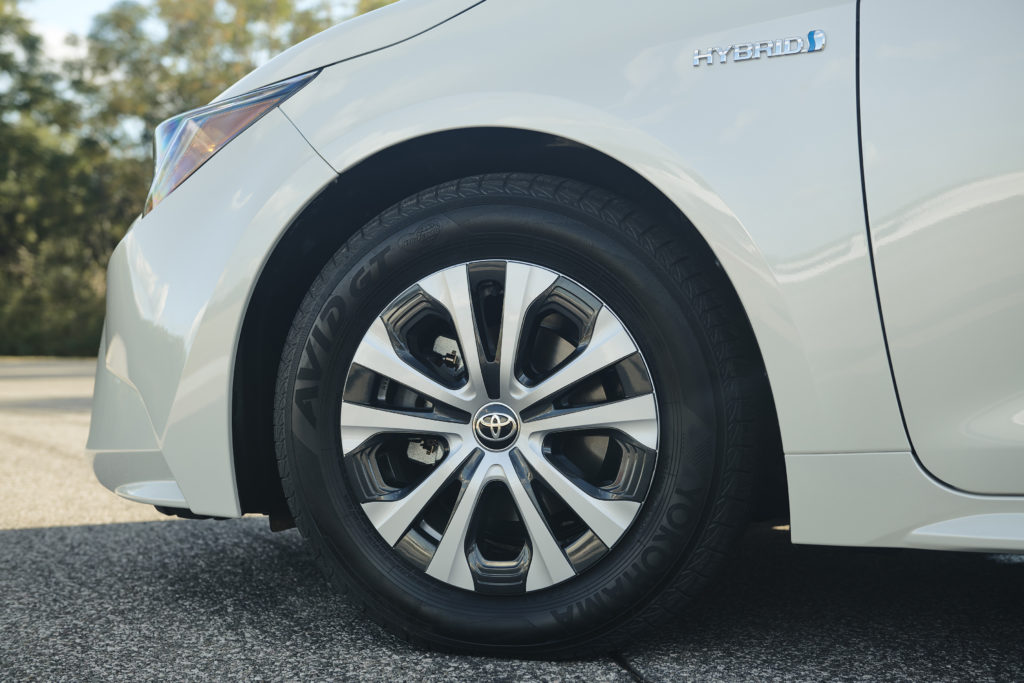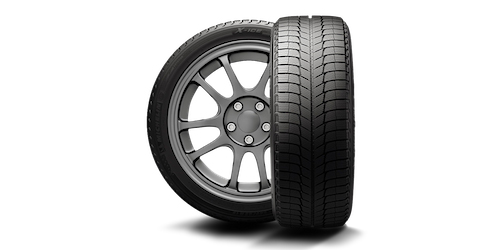Choosing the Right Tires for Your Vehicle

There are many different tire brands on the market with hundreds of different tires. Which one is right for your vehicle? Picking the correct set of tires can be a daunting task but, in this article, we’ll break down that process to make it a little bit easier.
First, you have to ask yourself a few questions:
- Do I need tires for Summer or Winter?
- How will I use them? City driving, highway driving, canyon carving?
- How many kilometers will I put on them?
- How much do I want to pay?

Summer, All-Season, or Winter Tires?
Let’s tackle the first question. There are three main types of tires: Summer, All-Season, and Winter. Summer tires provide the best grip and braking performance when the temperatures are warm, but they can become downright dangerous when there’s ice or snow on the ground. All-season tires perform adequately in most driving conditions. They’re not great in any one aspect, such as grip, snow driving, braking, etc., but instead are average. These are the most common types of tires that new vehicles are equipped with. Lastly, winter tires perform best when the temperatures dip below 7°C. Summer and all-season tires become harder at lower temperatures, but winter tires remain soft, which provides better grip on ice and snow. However, they do wear out much quicker during the hot summer months.

There is also another type of tire which is not as common as the tires mentioned above. This is called an all-weather tire and it slots in between all-season and winter tires. These types of tires have the snowflake within the mountain logo on them which constitutes them as being legal on BC highways during the winter months. They do provide better winter driving performance than all-season tires but not quite on the same level as full winter tires. Additionally, you can use all-weather tires year-round, but they will wear out more quickly than all-season tires.
Ideally, you want to have two sets of tires. One for the spring/summer/fall months and one set for the winter months. Switching between the two sets will not only ensure that you will stay in control of your vehicle given the road conditions, but it could also be more cost effective as you would not be putting mileage on the tires that you are not using. Obviously, if you live in a temperate climate like Florida, there’s no need for winter tires and you can stick to summer or all-season tires year-round. However, if you live in a climate with heavy snowfall and/or rain during parts of the year, like Vancouver or Toronto, it would be worth investing in two separate sets of seasonal tires.
How Will You Use Your Tires?

Now that you know which season you’ll use your tires, where and how will you be using them? Do you drive a lot on highways? Do you commute daily to the office on potholed city streets? Do you drive a sporty car and want maximum grip?
If you drive primarily on highways, you’ll want to choose a tire that has a low rolling resistance so that your vehicle uses less fuel. You may also want to consider a tire that has a soft sidewall so that it can better absorb the shunts of bumps and cracked road surfaces. Generally speaking, all-season and winter tires have softer sidewalls than summer tires but you can also find out which tires provide a better ride from tire reviews on websites such as TireRack.com, or consult your OpenRoad Parts Advisor.
If you commute on a daily basis into a bustling city core, the tires with a softer sidewall are ideal to absorb the bumps in the roads. Additionally, you may want to consider tires that have a bit more grip for responsive braking performance. All tires have tread information on the sidewalls. This is called the UTQG rating and provides info on treadwear, temperature, and traction. For treadwear, the higher the number, the longer it should last. Temperature refers to the temperature that the tire can withstand before it starts to degrade. And traction refers to how much grip it can provide and is measured from AA (best traction) to C (least traction).
For those that drive a sports car, you’ll want tires that provide exceptional grip with stiff sidewalls for better response and better road feel. These types of tires are generally summer-only, are noisier at higher speeds and don’t last as long as other types of tires.
How long will my tires last?

Generally speaking, an average set of tires should last between 50,000 and 70,000 km. High performance summer tires have a lifespan that is shorter while all-season tires should last the longest. Winter tires generally last long as well so long as you swap them out during the hot summer months.
There are a few ways to get an idea of how long a specific set of tires will last. First is the manufacturer’s warranty. This can range from 60,000 km all the way up to 110,000 km. Second is the UTQG rating. If the treadwear number is higher, then the tires should last longer. And finally, reviews of the tires. Tire websites and stores perform independent tests of new tires and review them. You can also find reviews from customers who have purchased specific tires.
How much do I want to pay?
The price of tires can range from less than $100 per tire to over $400 per tire, or even more in some cases of specialty performance tires. The tires that are less than $100 are usually from companies that no one has ever heard of. They are still safe for your vehicle but they won’t last as long as name-brand tires and usually don’t come with any sort of warranty.
At the other end of the spectrum, high performance summer tires are the ones that will cost close to $400 per tire. More research and development went into creating these tires and not as many people buy them so there is less inventory.
With all-season tires being the most popular, they generally cost between $170 – $220. The difference in prices is dependent on the name-brand, tire performance, and availability. Speaking of availability, winter tires are usually a little bit more expensive than all-season tires. The rush to get winter tires during the first snowfall can drive up prices for a short while and inventory can drop significantly. Additionally, winter tires are harder to find during the Spring and Summer months as most tire stores stock up on all-season and summer tires.
When it comes time to do a seasonal tire swap, many tire manufacturers often have tire rebates. Be sure to check our OpenRoad Tire Centre for the latest incentives.
Although buying a new set of tires might seem difficult, it’s a fairly straightforward process. Many tire websites allow you to put in your vehicle’s make and model & it will provide you with the correct tires that fit your car. Then, just ask yourself the four questions in this article to narrow down the list of tires. As well, our Service and Parts Advisors at any OpenRoad location will happily help recommend the right tires for your vehicle.

